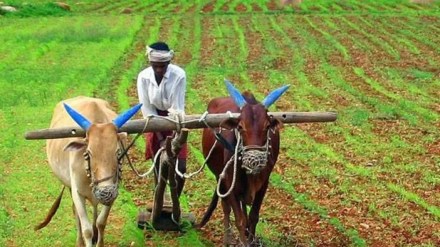Futures trade in agricultural commodities is making steady progress. According to exchange data, in the first quarter of FY26, 702 farmer produce organisations (FPOs), representing over 1.16 million farmers, have traded on the NCDEX, in a host of commodities namely cotton, cumin seeds, castor, coriander, turmeric, castor, cotton seed oil cake and guard seeds.
An agriculture ministry official said that selling through commodity bourse has led to formalisation of agricultural trade, with payment going into the FPO bank accounts while ensuring aggregation and procurement from farmers members by collectives.
Better Prices Through Exchange Trading
“By selling jeera or cumin and castor seeds on the commodity exchange, we have realised about 10% more prices than the prices we receive from selling commodities to traders,” Ganpatram Chaudhry, CEO, Mandor Kisan Farmer Producer Company, a Jodhpur, Rajasthan based farmers collective, told FE.
The collective sold Rs 1.5 crore worth of agri-commodities on NCDEX out of the total sales turnover of Rs 2.25 crore in FY25. The target is to achieve Rs 4 crore business on the platform in the current fiscal while in the first quarters the collective with 750 farmers, has sold Rs 1.5 crore of agri-commodities on the NCDEX platform.
“Commodity derivatives are regulated market instruments that ensure price discovery, enable effective risk management solutions and help in improving market access,” Arun Raste, MD, NCDEX, said.
Mahesh Karanjia, director, Ranmal Farmer Producer Company, a Jamnagar, Gujarat based collective, said they have sold Rs 2.5 crore worth of agri-commodities – castor and cumin seeds on the platform in the current fiscal, while aiming to boost trade further.
Policy Support and Market Expansion
Farmers groups have also stated that more commodities should be opened up for future trade while the Securities and Exchange Board of India has extended the suspension of trading in derivative contracts for seven agricultural commodities – paddy (non-basmati), wheat, chana, mustard seed and its derivatives, soybean and its derivatives, crude palm oil, and moong till March 31, 2026
In FY25, 340 FPOs have crossed Rs 10 crore sale turnover, while over 1100 farmers collectives have reported sales exceeding Rs 1 crore. Cumulative turnover of these farmers’ collectives have crossed Rs 15,282 crore.
Over 9,450 FPOs are currently on board the government’s e-commerce platform ONDC. Over 200 collectives are selling their products on platforms such as GeM while sales of agri-produce have also commenced in a significant way via Amazon and Flipkart.
Several farmers’ collectives formed in the last five years through the central sector scheme have also carried out procurement of oilseeds, pulses and grain under minimum support price (MSP) to boost their businesses.
The scheme for formation of 10,000 new FPOS was aimed at enhancing collective bargaining power of farmers through local aggregation and reducing cost of production through leveraging economies of scale, financial assistance up to Rs 18 lakh per FPO for a period of three years.
In addition, provision has been made for matching equity grants up to Rs 2,000 per farmer member of an FPO with a limit of Rs 15 lakh per collective. Credit guarantee facility upto Rs.2 crore loan from eligible lending institutions for these collectives.
The scheme also entails a credit guarantee facility up to Rs 2 crore of project loan per FPO while Rs 25 lakh per FPOs is provided to cluster-based business organisations for five years to boost marketing of products.
The scheme has a budgetary provision of Rs 6,865 crore for the five years since FY21, and will run through FY26.
